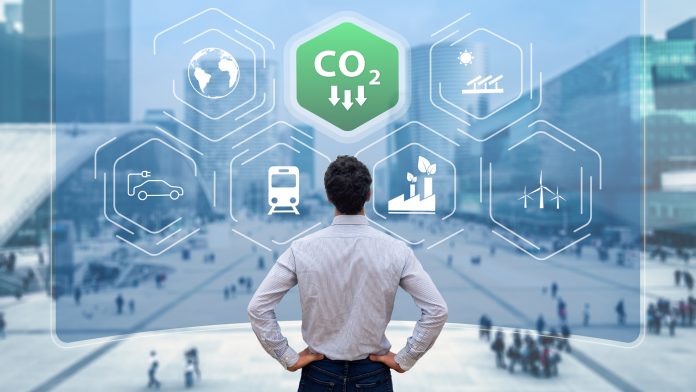A research team from the University of Surrey has developed a novel method for converting carbon dioxide into fuel.
Why are scientists embarking on the task of converting CO2 into fuel?
The project for converting CO2 into fuel has been awarded £250,000 by the Engineering and Physical Sciences Research Council through the Adventurous Energy Research for a Sustainable Net-Zero scheme.
Dr Melis Duyar, project lead from the University of Surrey, said: “Synthesising methanol would constitute a significant advancement, coupling a presently expensive but necessary method of CO2 capture from the air, with the production of a substance that can bring some revenue to offset costs and further incentivise the scaling up of direct air capture.
“The main challenge for our project will be reconciling the fact that commercial methanol synthesis takes place at high pressures (50-100 bar) and moderate temperatures (200-300°C), while direct air capture is typically carried out in ambient conditions. We want to show that it is possible to produce methanol in mild conditions through dynamic catalysis.”
If successful, the Surrey team will extend their project to show it is possible to synthesise other chemicals with a negative carbon footprint, such as sustainable fertiliser.
What are the benefits of this project?
The project aims to capture carbon dioxide (CO2) directly from the air and use dynamic catalysis to create methanol – a valuable chemical that, when made this way, could be carbon-negative. Its value could offset the cost of direct air capture.
Dr Duyar explained: “Pulling chemical building blocks directly out of the air can create a ‘just in time’ process that will help us finally say goodbye to safety hazards such as storing large quantities of chemicals. Importantly, this process could boost the economy by spurring carbon-negative growth, as well as provide fuel security for the UK.”
The International Energy Agency has identified direct air capture and storage as one of the three biggest opportunities to achieve Net Zero and methanol production, utilising hydrogen, and CO2 as an innovation gap.
One of the biggest advantages of this direct air capture technology is that it does not rely on extensive land and water use, unlike alternatives, such as biomass.
In 2020, the UK imported £145 million worth of methanol which amounts to 0.6-1.6 megatonnes of CO2 – this is a significant figure when compared to the 326 megatonnes, the total CO2 emitted by the UK that year.
Professor Bob Nichol, Executive Lead of Sustainability and Pro-Vice-Chancellor and Executive Dean of the Faculty of Engineering and Physical Sciences at the University of Surrey, concluded: “This is exactly the innovative research we do here at the University of Surrey with real societal impact. I wish my colleagues every success as we need these solutions to become a more sustainable planet.”
To keep up to date with our content, subscribe for updates on our digital publication and newsletter.









